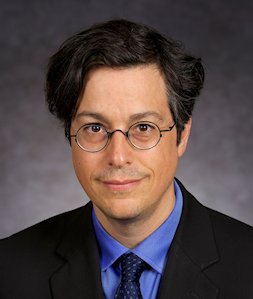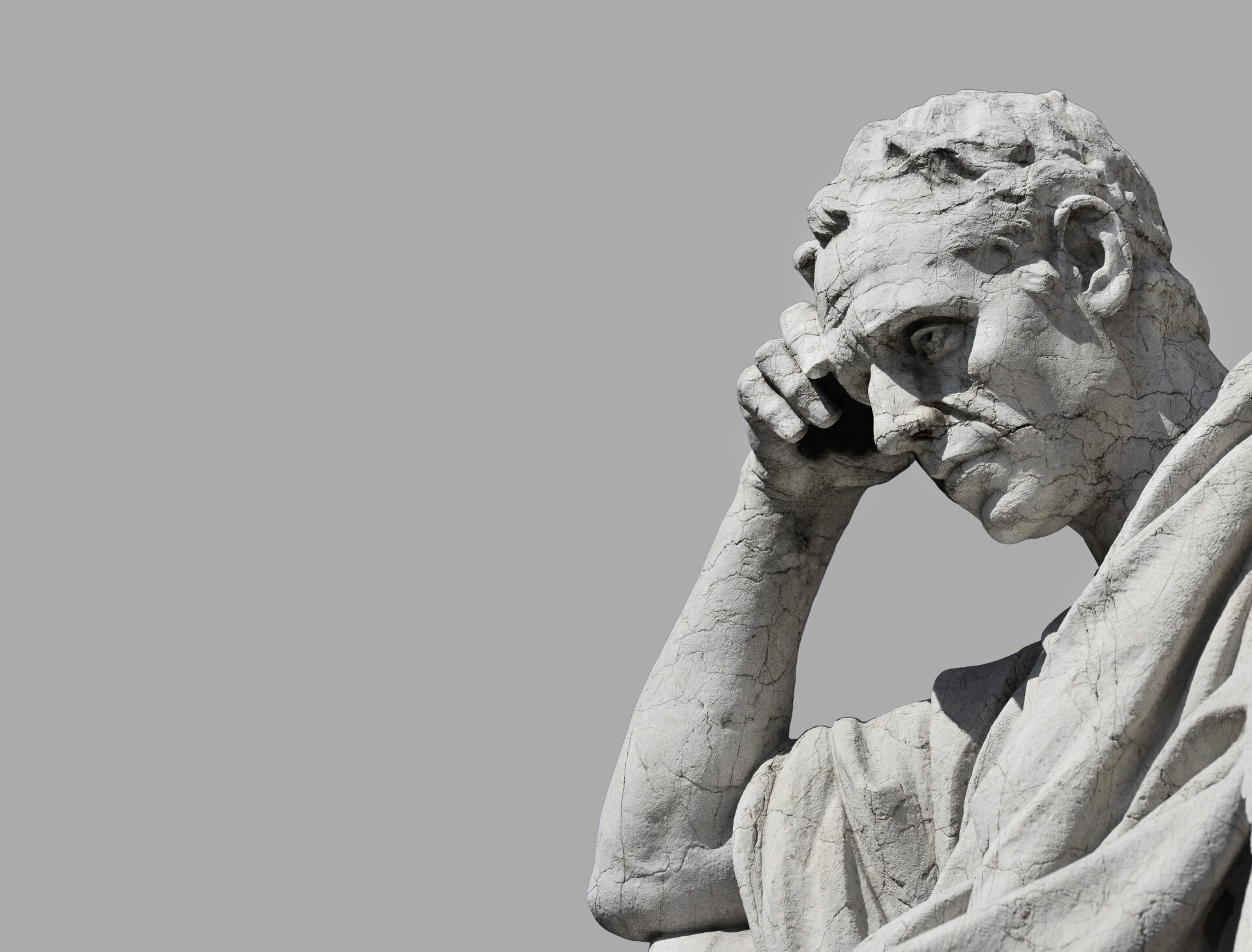
David Williams, Professor, DePaul University Liberal Arts and Social Sciences (DePaul University/Jeff Carrion)
The concerns over economic inequality have grown louder and more urgent in the modern zeitgeist, magnified especially by Thomas Piketty’s 2013 book “Capital in the Twenty-First Century.” David Lay Williams, professor of political science at DePaul University, argues that these debates, although critically important, lose sight of the contributions made by early political theorists who sought to explore the causes and consequences of rising economic inequality.
“Economic inequality is not a new problem. It’s not a new issue. It’s been around forever and people have been writing about it for as long as we’ve had recorded words … Western political thought has been grappling with this from the beginning,” Williams says. His new book, “The Greatest of All Plagues,” explores key insights from Western political theorists from Plato and Jean-Jacques Rousseau to Adam Smith and Karl Marx. Last June, Williams convened a group of top scholars for a manuscript workshop with IHS support.
“I applied for the IHS grant because I do not work at an R1 institution … there are simply not the resources and opportunities for funding on campus to hold events like this. So I jumped at the opportunity to get IHS funding.”
– David Lay Williams
Williams emphasizes the importance of IHS support for a scholar who is not at an R1 research institution, defined as an institution that produces “very high research activity,” according to the Carnegie Foundation. “Opportunities for book manuscript workshops are not the norm here at a school like DePaul, the way they might be at other larger universities,” he says.
The feedback Williams received from the workshop improved his research tremendously. “The overall manuscript has been improved and is still improving thanks to the workshop,” he adds. For example, Williams received expert insight from scholars more familiar with the literature on Marx and the New Testament, both topics of which form key chapters in the book.
According to Williams, the classical liberal tradition has informed the debate over economic inequality since its founding. Adam Smith, the intellectual godfather of capitalism, speaks at length about the dangers of economic inequality. “In Adam Smith, I find a real pattern of problematizing economic inequality,” he observes.
One example Williams gives is from Smith’s “The Theory of Moral Sentiments,” where he discusses circles of sympathy that radiate from each individual in society. As economic inequality widens between rich and poor, the circle of sympathy narrows among the rich as they become more insulated from those lower on the income ladder.
John Stuart Mill, another classical liberal intellectual, joins the conversation on economic inequality by acknowledging its perverse consequences and claiming that there are policies available to reduce the presence of inequality. Mill’s policy recommendations particularly struck Williams as remarkable, a leap that even Adam Smith was not quite willing to take.
“Mill notably favored an extreme inheritance or estate tax approaching 99% on the wealthiest estates,” Williams notes. “According to Mill, nobody ought to inherit more from their parents than what could support a modest lifestyle.”
Both Adam Smith and John Stuart Mill contend that social cohesion weakens as economic inequality festers. He points out that without adequate attention on these issues, society can split apart at the seams. This is exactly what political scholars were trying to avoid in their commentary on rising economic inequality.
Williams also hopes to disentangle the concept of poverty from economic inequality. They are not the same. “Inequality is a distinct problem from the problem of poverty,” he says. His book aims to counter the idea of sufficientarianism, or the “argument that economic inequality itself is unimportant,” he notes.
“Even if everybody had a roof over their heads and food to eat, the gap between those at the top and those at the bottom — or even the gap between those at the very top and those in the middle — would still present real problems for society,” he says.
Williams argues that we can celebrate the extraordinary achievements in wealth creation over the last few centuries while also addressing the serious concerns that rising economic inequality plays in everyday life.
“I want to express my gratitude. This was an opportunity that would’ve only been available to me through an external foundation like IHS … And I really appreciate the intellectual charity and open-mindedness in extending a hand to someone interested in challenging some orthodoxies of the political right. I think that speaks very well of IHS because it’s a place where left and right can have meaningful conversations generated by the great books.”
– David Lay Williams
The IHS workshop, he mentions, provided the space to explore the intersection between the history of Western political thought and economic inequality.
Williams is excited to finish the project and hopes to make a splash in the literature on economic inequality after hearing from such a diverse group of scholars. He finishes by saying, “I think this book would lend itself to some really good conversations between people coming from different perspectives. I’m grateful to have been able to improve this manuscript with this IHS grant, and I’m eager to hear what those conversations sound like.”
